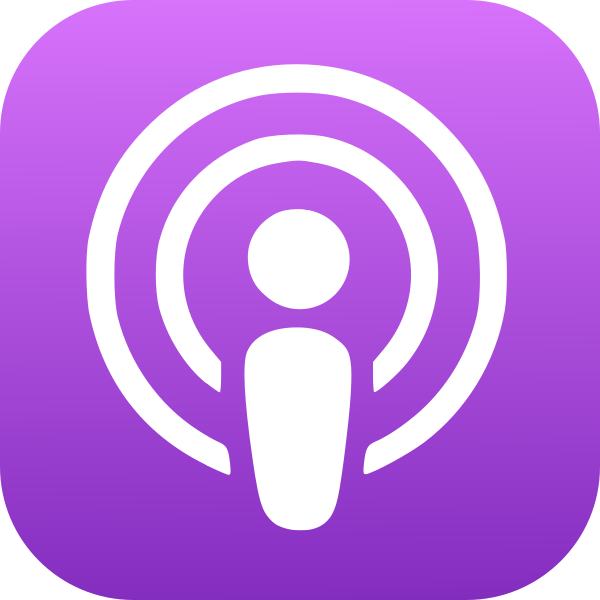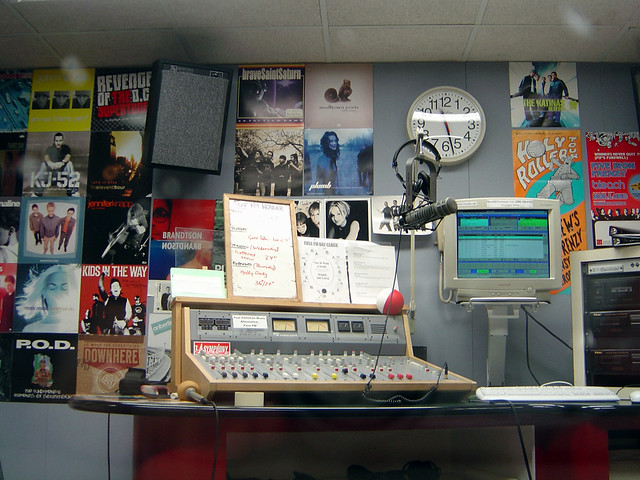Podcasts Killed the Radio Star
By Olivia Chatowsky, October 21, 2019
Podcasts have proven very popular today as an inexpensive way for people to get their voices heard, and they come with their own advantages and disadvantages such as their user-friendly nature but concern for quality. Yet with the emergence of this new, cheap way to broadcast, radio shows, particularly those in colleges may be at risk of becoming a lost art, removing a unique experience for students.
In today’s culture along with the most popular shows on Netflix, the latest trending songs on Spotify, and all the other media we talk about and recommend to each other, podcasts are also among the most commonly shared media source today. Countless times my friends have recommended podcasts for me to listen to, sharing their favorite ones for running or driving or even just doing homework.
In this light, there are many positive aspects of podcasts as mentioned by Mark Frary in his article. The simplicity of podcasting helps the average person make their voice heard, such as podcasters in Vietnam where podcasts are used to cover stories no matter how challenging or sensitive (Frary 2017, 25). Since a podcast can be recorded from a computer or phone and uploaded, they often avoid many censors where freedom of speech and media are limited (Frary 2017, 25).

According to Frary, another example is evident in Zimbabwe where a podcast was launched when a lawyer and a journalist joined forces to create a podcast that allowed young voices to share their thoughts on politics (2017, 26). Podcasts are a way to hear many opinions since they can be broadcast so easily, especially with podcast apps that come with phones today (Frary 2017, 27). While this is an easy and cheap way for many people to share their stories and opinions, it also has some disadvantages.

The rise of the podcast, due to its convenience, means trouble for college radio. According to an article written by Kevin Lozano, college radio is a timeless experience and culture truly like no other; it is a place where not only freedom of speech is encouraged, but experimentation, randomness and risk taking are as well (2017). However, more and more college radio stations are going silent since students don’t seem to be listening, instead keeping up with music and streaming elsewhere (Lozano 2017). Students are less likely to hear something first on college radio, which is why more of them turn to other sources for immediacy and accuracy (Lozano 2017).

In a blog post written by journalist Nick Hilton, he explains that while podcasts haven’t killed radio, thet have certainly weakened radio. However, podcasts don’t have the same impacts as radio because less money needed to create a podcast means less experienced hosts and producers (Hilton 2019). Also, due to their inexpensive nature, podcasts get sponsors based on content not quality (Hilton 2019), potentially leading to bias. With a lack of experience, the final product is not as refined or professional necessarily as a radio talk show (Hilton 2019).
While the impact of podcasts on radio, specifically college radio may not be as dramatic as the title here suggests, podcasts still have indubitably dented the popularity of radio shows. It is important to have a space where people can broadcast their stories but eliminating another type of creative space in the making is when problems arise.
Works Cited
Frary, M. 2017. Power to the podcast. Sage Journals 46(3): 24-27.
Hilton, N. 2019. Radio vs Podcasts. <https://medium.com/pod-culture/radio-vs-podcasts-8152e3b3cdcb> Accessed October 20, 2019.
Lozano, K. 2017. Does College Radio Even Matter Anymore? <https://pitchfork.com/features/article/10018-does-college-radio-even-matter-anymore/> Accessed October 20, 2019.
